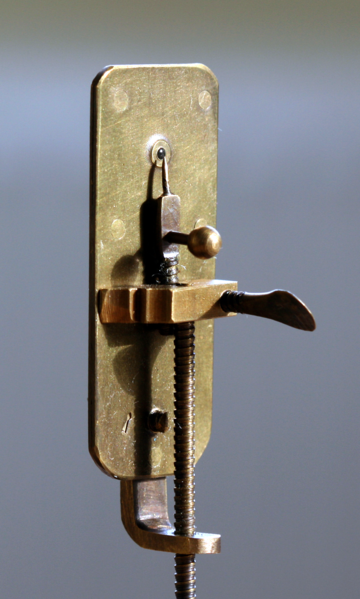All of them need a vacuum because you can't shoot elecrons through air, as mentioned at Video "50,000,000x Magnification by AlphaPhoenix (2022)".
The Scanning Electron Microscope by MaterialsScience2000 (2014)
Source. Shows operation of the microscope really well. Seems too easy, there must have been some extra setup before however. Impressed by how fast the image update, it is basically instantaneous. Produced by Prof. Dr.-Ing. Rainer Schwab from the Karlsruhe University of Applied Sciences.Mosquito Eye Scanning Electron Microscope Zoom by Mathew Tizard (2005)
Source. Video description mentions is a composite video. Why can't you do it in one shot?It sees and moves individual atoms!!!
Transmission Electron Microscope by LD SEF (2019)
Source. Images some gold nanopraticles 5-10 nm. You can also get crystallographic information directly on the same machine.This technique has managed to determine protein 3D structures for proteins that people were not able to crystallize for X-ray crystallography.
It is said however that cryoEM is even fiddlier than X-ray crystallography, so it is mostly attempted if crystallization attempts fail.
We just put a gazillion copies of our molecule of interest in a solution, and then image all of them in the frozen water.
Each one of them appears in the image in a random rotated view, so given enough of those point of view images, we can deduce the entire 3D structure of the molecule.
Ciro Santilli once watched a talk by Richard Henderson about cryoEM circa 2020, where he mentioned that he witnessed some students in the 1980's going to Germany, and coming into contact with early cryoEM. And when they came back, they just told their principal investigator: "I'm going to drop my PhD theme and focus exclusively on cryoEM". That's how hot the cryo thing was! So cool.
The structure of our cells by Matteo Allegretti
. Source. The start is useless. But the end at this timestamp shows an interesting technique where they actually cut up cells in fine slices and image them, that's cool.Super-resolution means resolution beyond the diffraction limit.
They you can observe fluorophores firing one by one. Their exact position is a bit stochastic and beyond the diffraction limit, but so long as there aren't to many in close proximity, you can wait for it to fire a bunch of times, and the center of the Gaussian is the actual location.
From this we see that super-resolution microscopy is basically a space-time tradeoff: the more time we wait, the better spacial resolution we get. But we can't do it if things are moving too fast in the sample.
Tradeoff with cryoEM: you get to see things moving in live cell. Electron microscopy fully kills cells, so you have no chance of seeing anything that moves ever.
Caveats:
- initial illumination to saturate most fluorophores I think can still kill cells, things get harder the less light you put in. So it's not like you don't kill things at all necessarily, you just get a chance not to
- the presence fluorophore disturbs the system slightly, and is not at the same Exact location of the protein of interest
Instead of shining a light over the entire sample to saturate it, you illuminate just a small bit instead.
He was basically saying that this truly brings the resolution to the actual physical limits, going much much beyond 2014 Nobel prize levels.
Two Photon Microscopy by Nemonic NeuroNex (2019)
Source. Shows a prototype of a two-photon electron microscope on an optical table, and describes it in good detail, well done.One of its main applications is to determine the 3D structure of proteins.
Sometimes you are not able to crystallize the proteins however, and the method cannot be used.
Crystallizing is not simple because:
Cryogenic electron microscopy can sometimes determine the structures of proteins that failed crystallization.
Often used as a synonym for X-ray crystallography, or to refer more specifically to the diffraction part of the experiment (exluding therefore sample preparation and data processing).
cyclotrons produce the better images, but they are expensive/you have to move to them and order a timeslot.
Lab-based just use some X-ray source from the lab, so it is much move convenient e.g. for a pharmaceutical company doing a bunch of images. The Wikipedia image shows such a self-contained lab system: en.wikipedia.org/wiki/File:Freezed_XRD.jpg
- 1958: myoglobin structure resolution (1958). The first protein to be resolved.
- 1965: lysozyme structure resolution (1965). The second protein to be resolved.
Crystallography determination with a transmission electron microscopy instead of the more classical X-ray crystallography.
- micro.magnet.fsu.edu/index.html OLD website with great design and much love. Some notable things:
As of 2022, this channel is still finding its feet. But it has promise.
Unfortunately it does not show sample preparation, and it does not use controlled cultures, so we are never sure which species are represented.
Behind the Scenes by Sci-Inspi (2020)
Source. His name is Manuael, aka Manu, and he is the chemistry lab technician at a community college.- phys.org/news/2023-02-muon-detectors-remotely-3d-image.html Using muon detectors to remotely create a 3D image of the inside of a nuclear reactor (2023)
Articles by others on the same topic
There are currently no matching articles.


